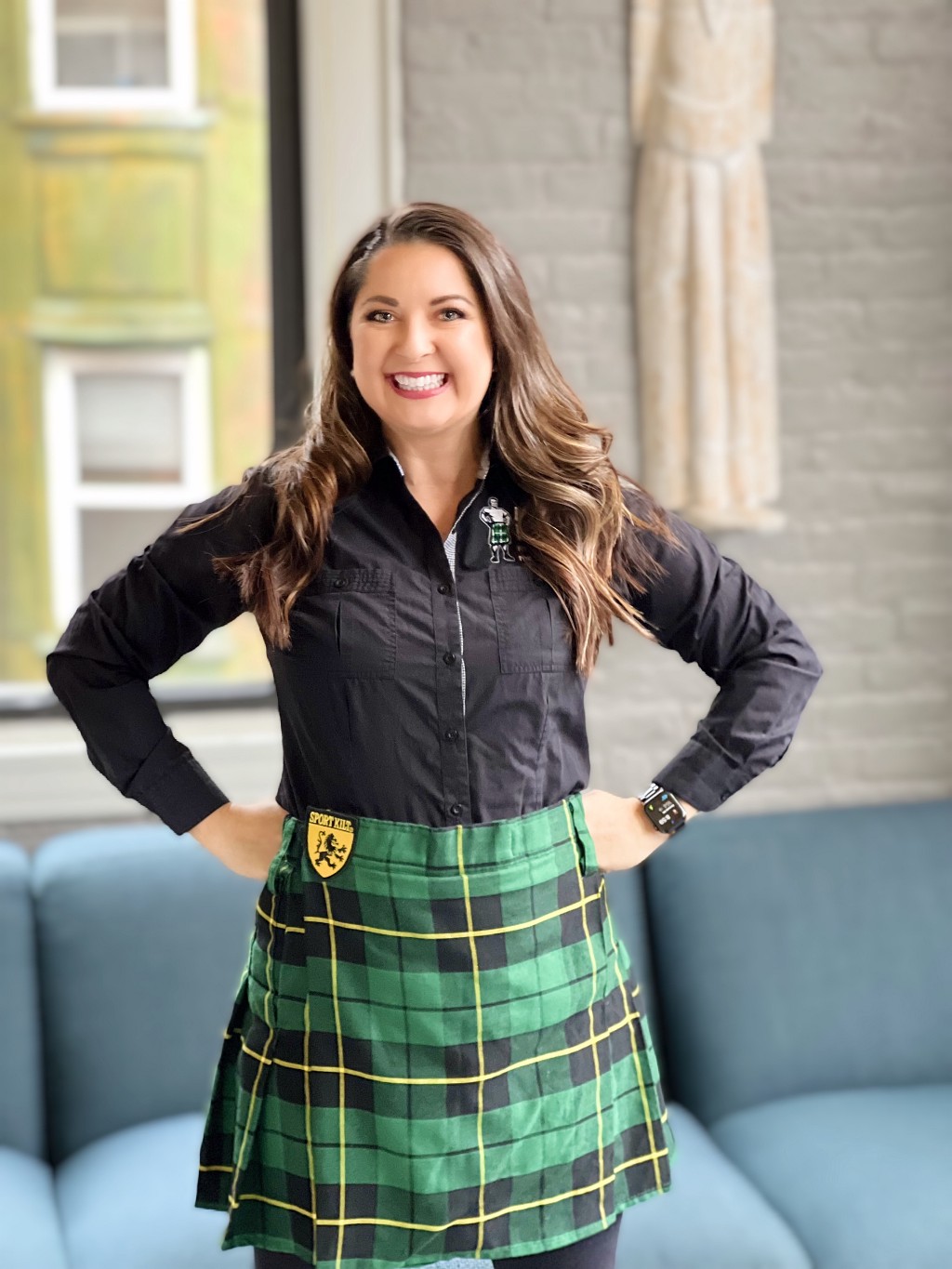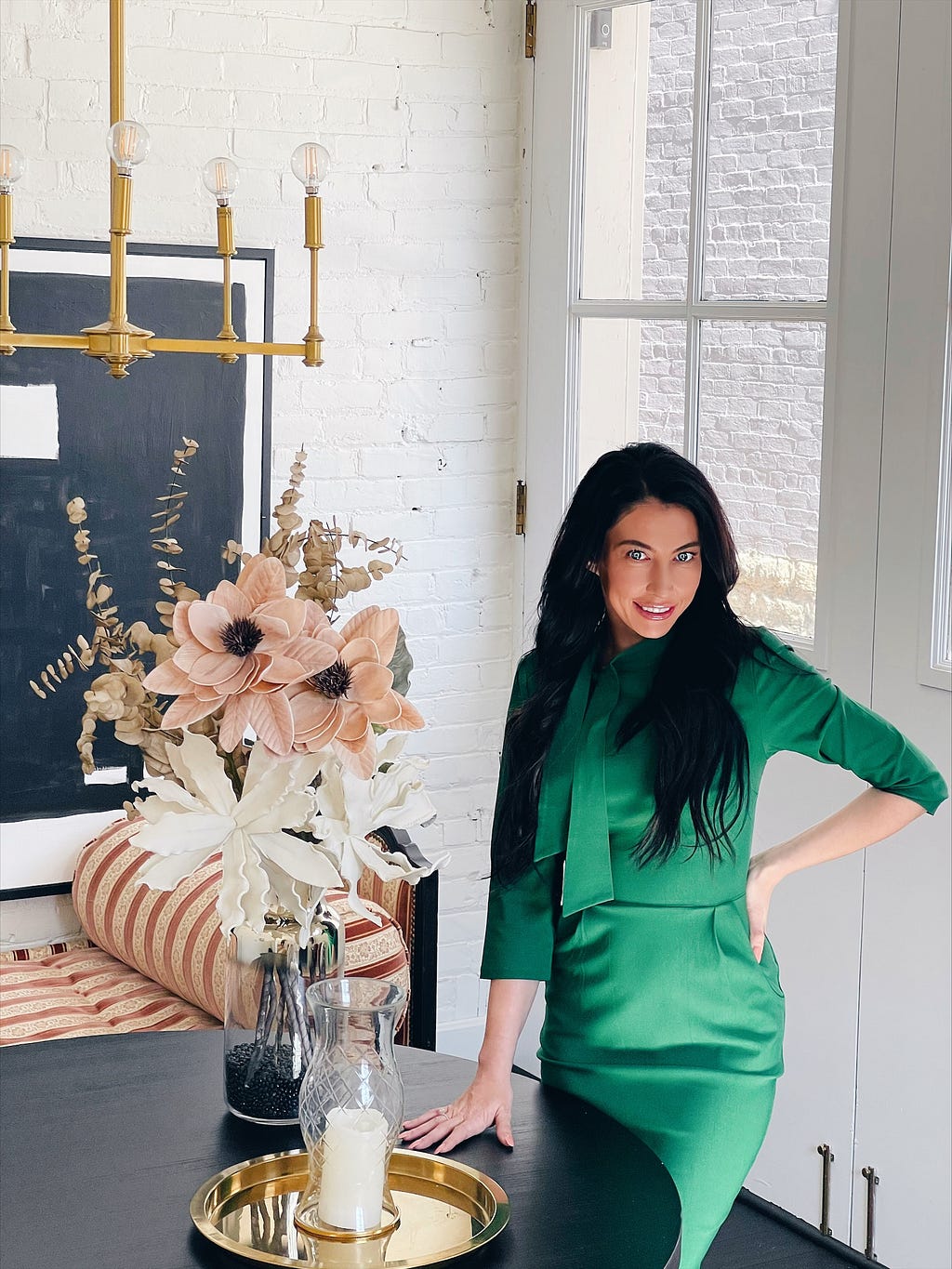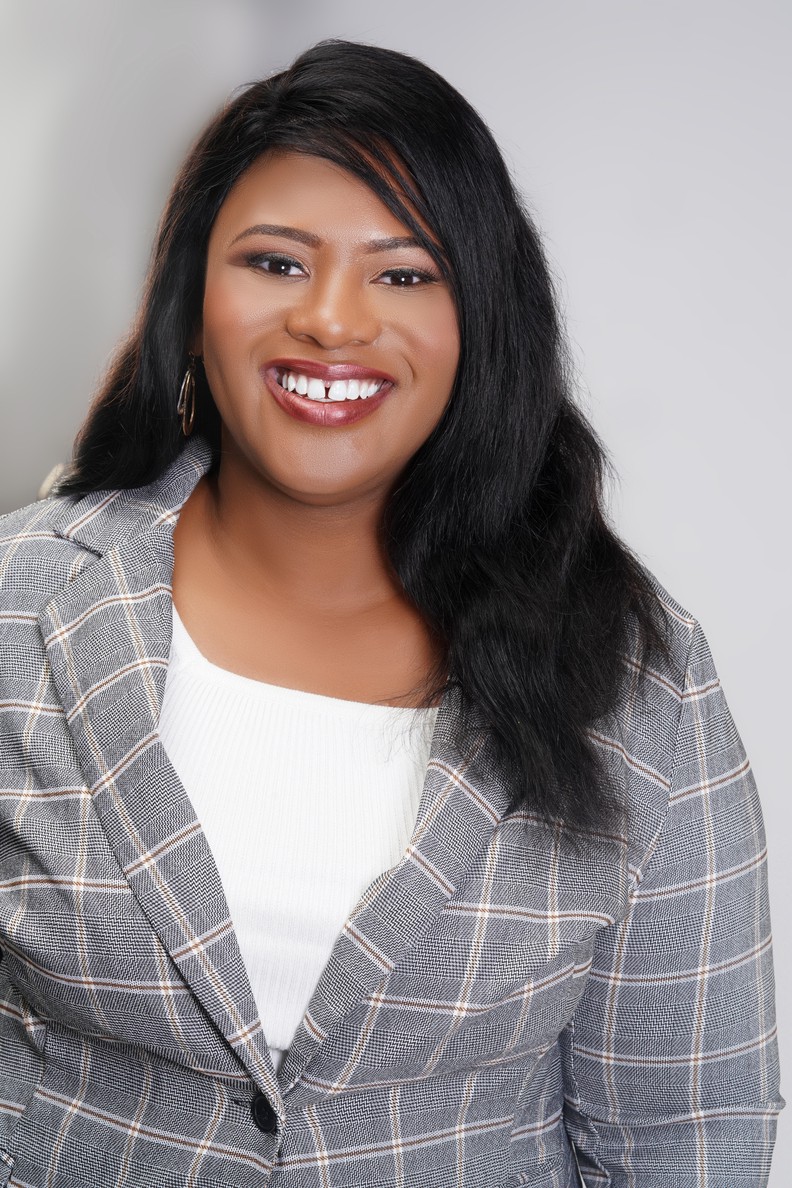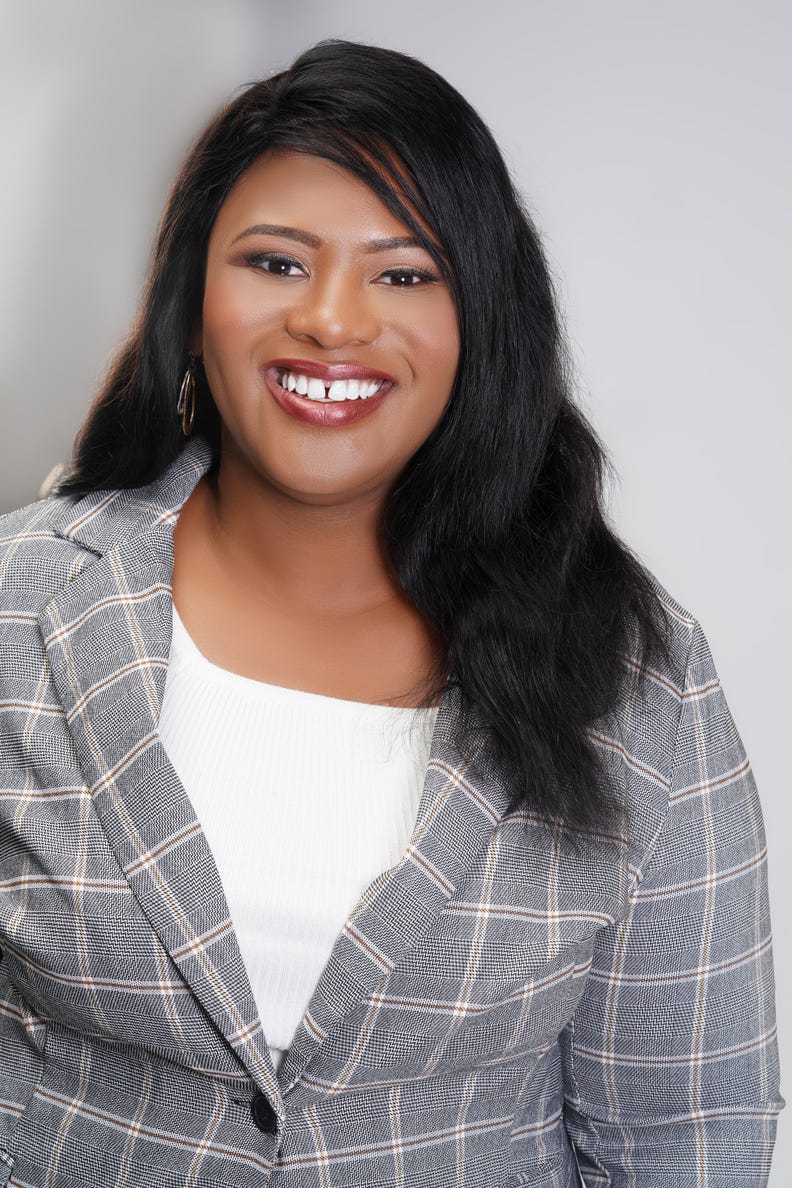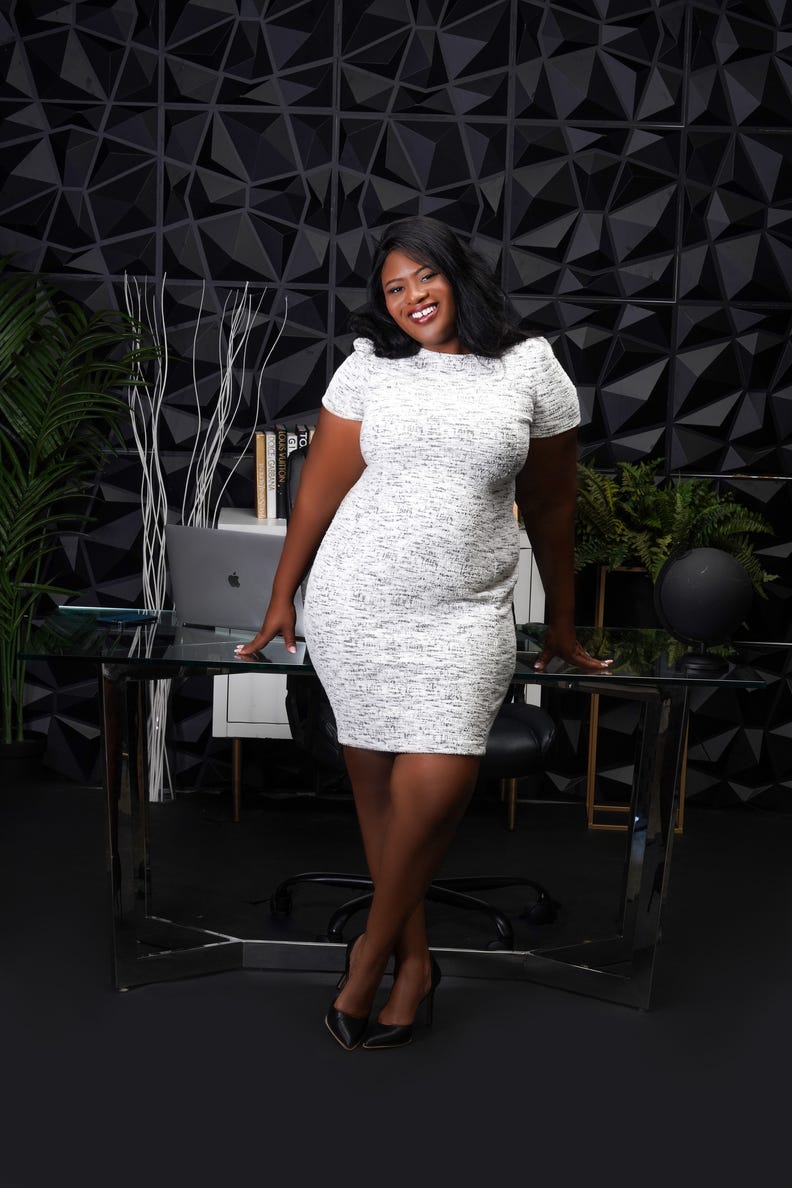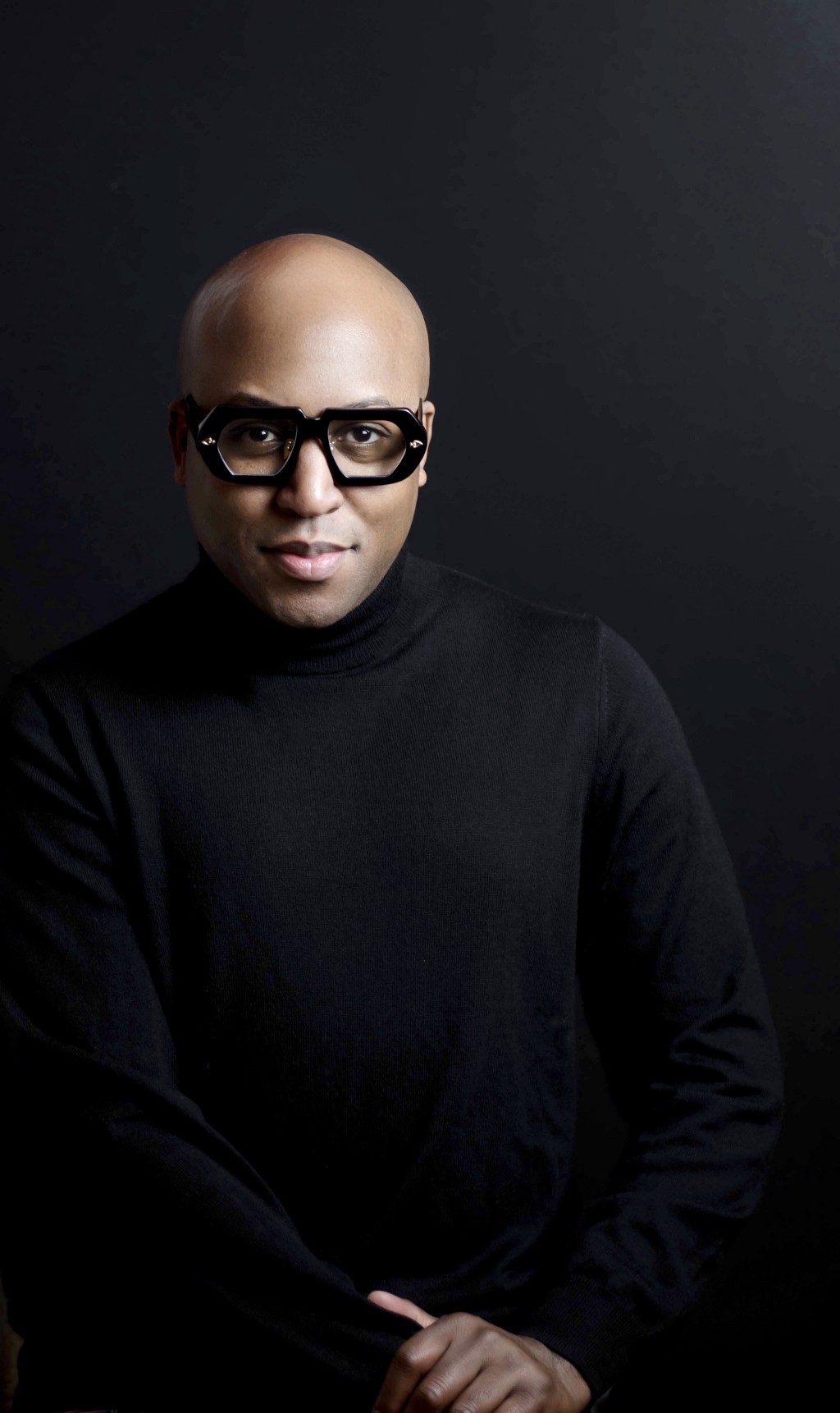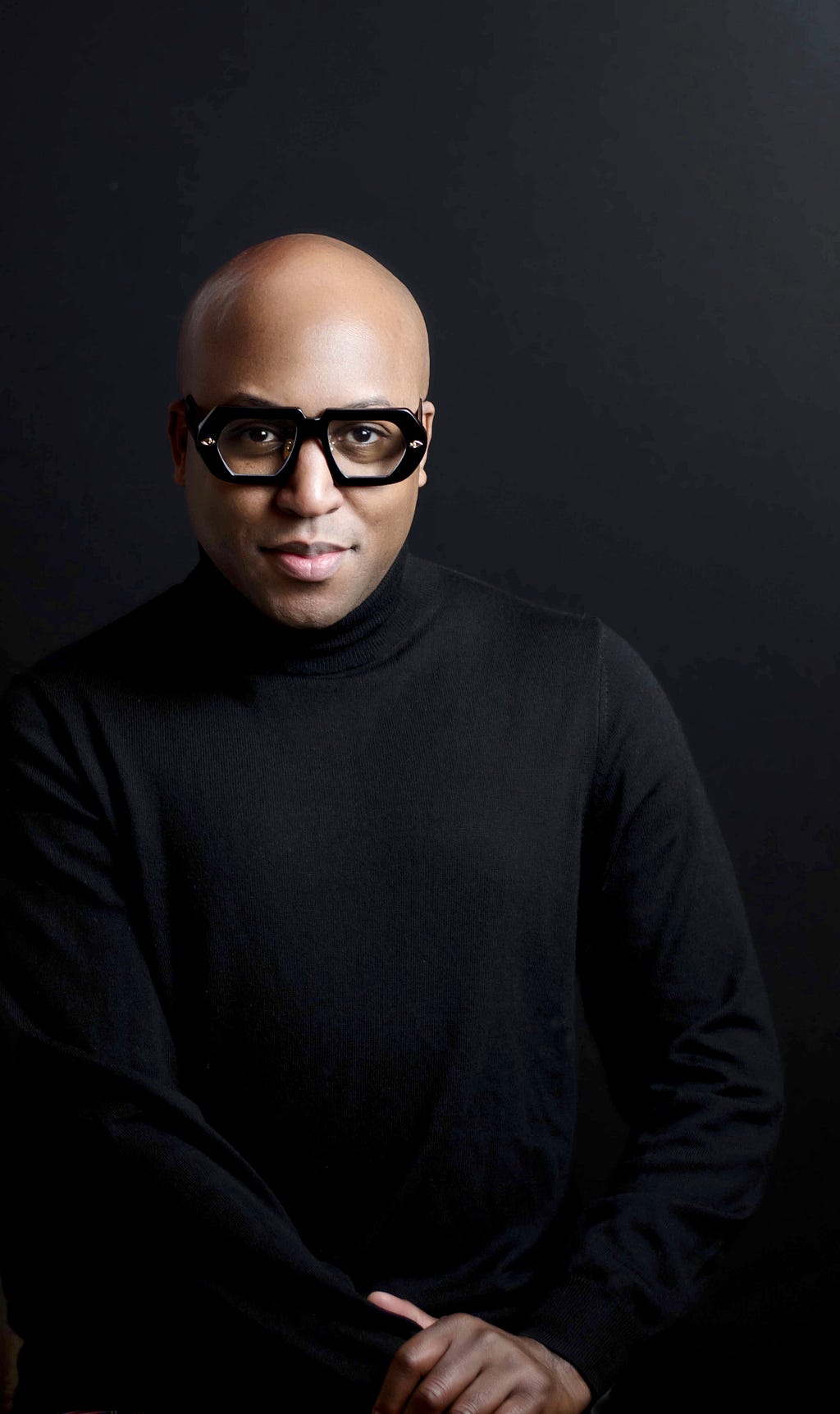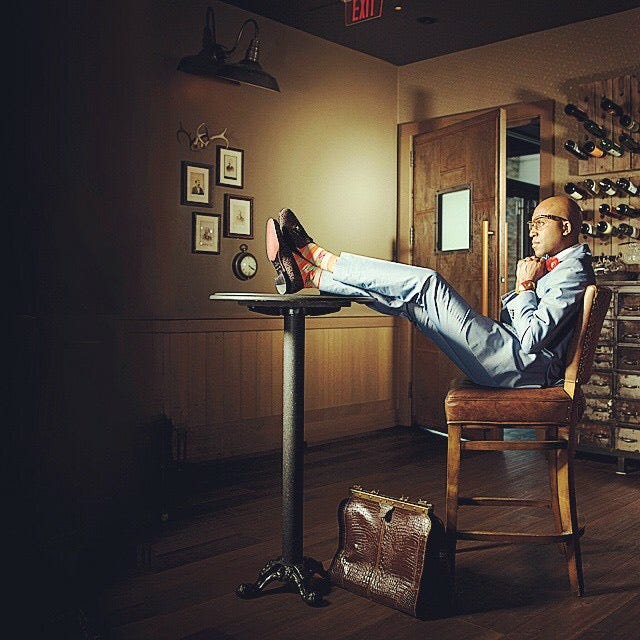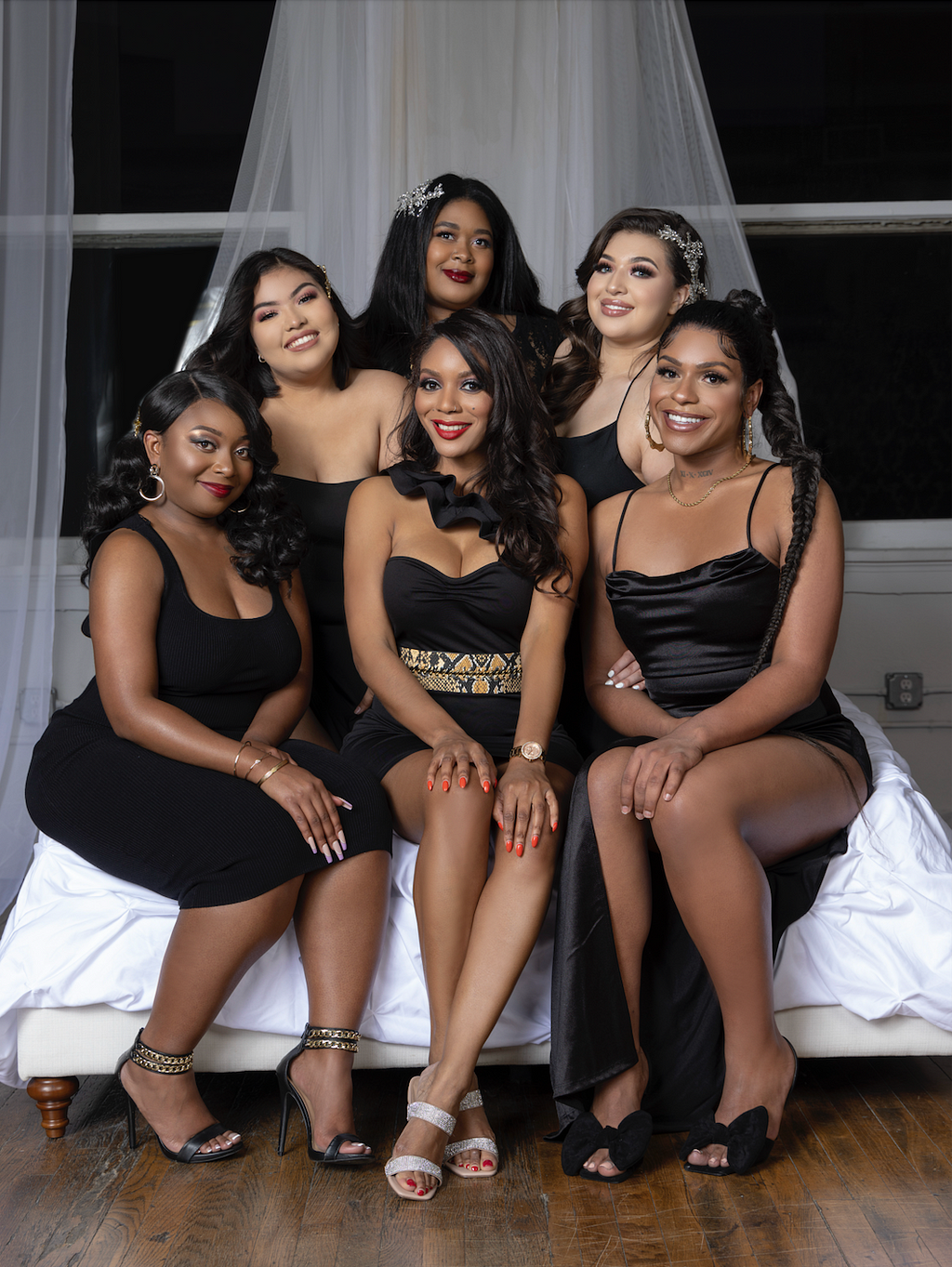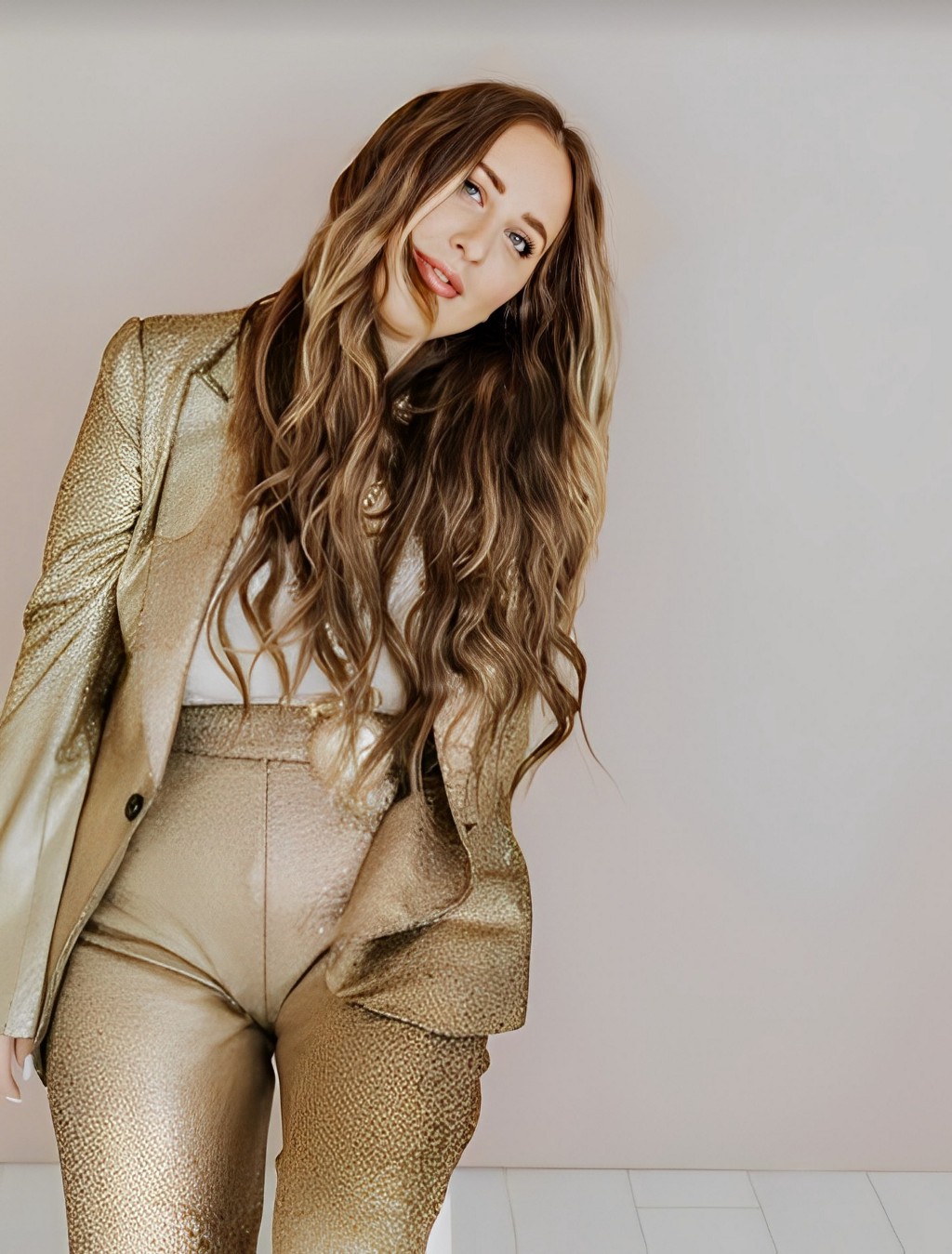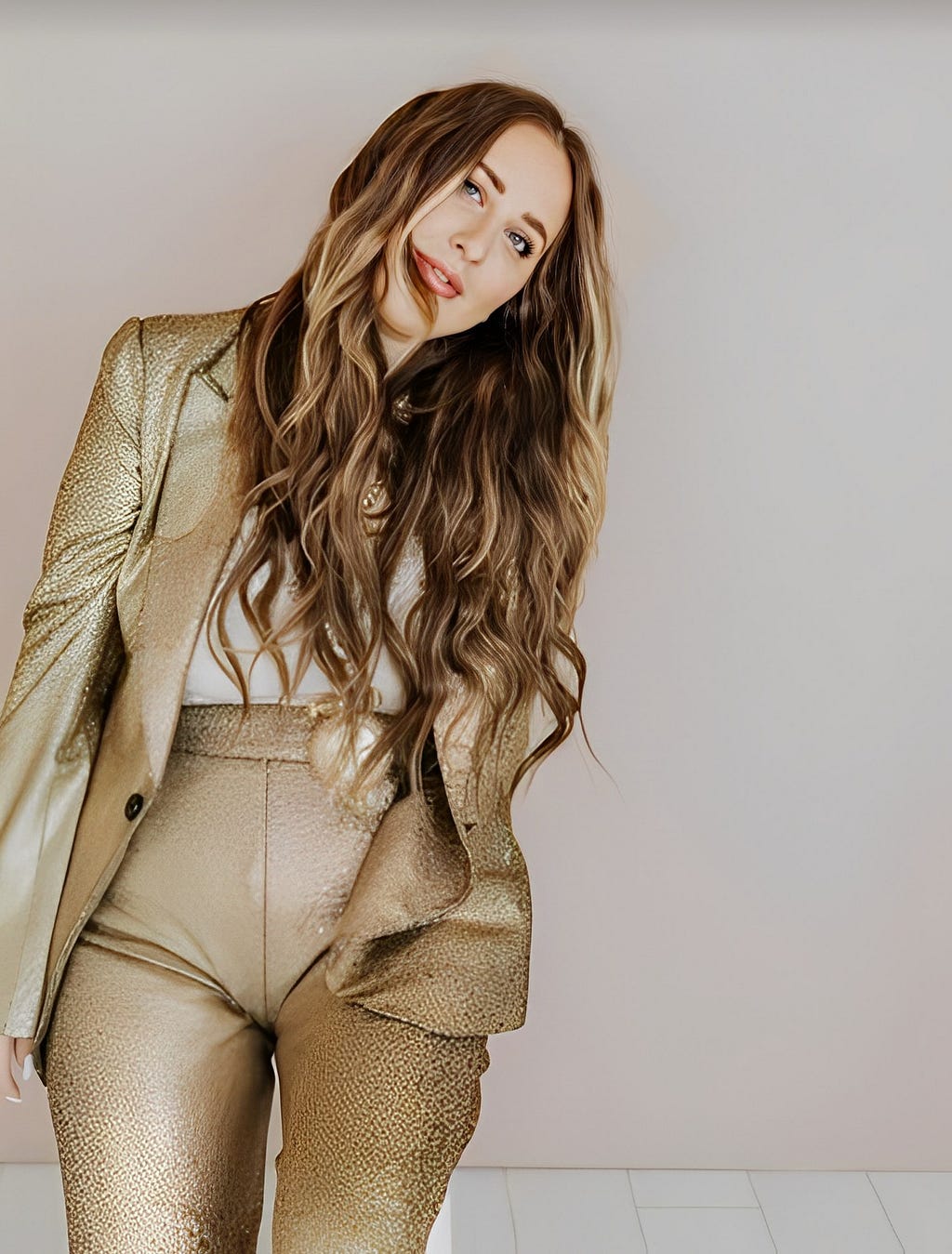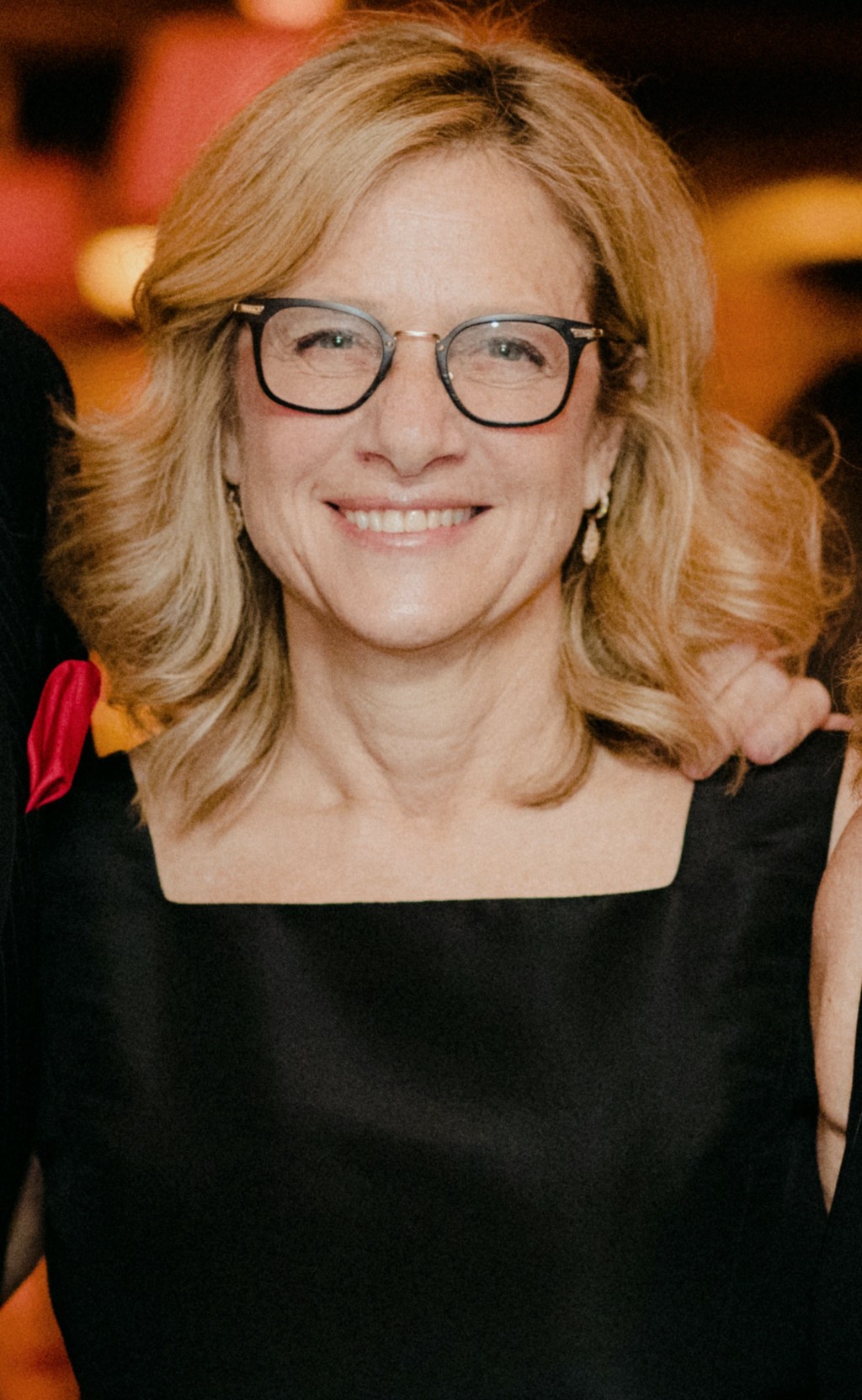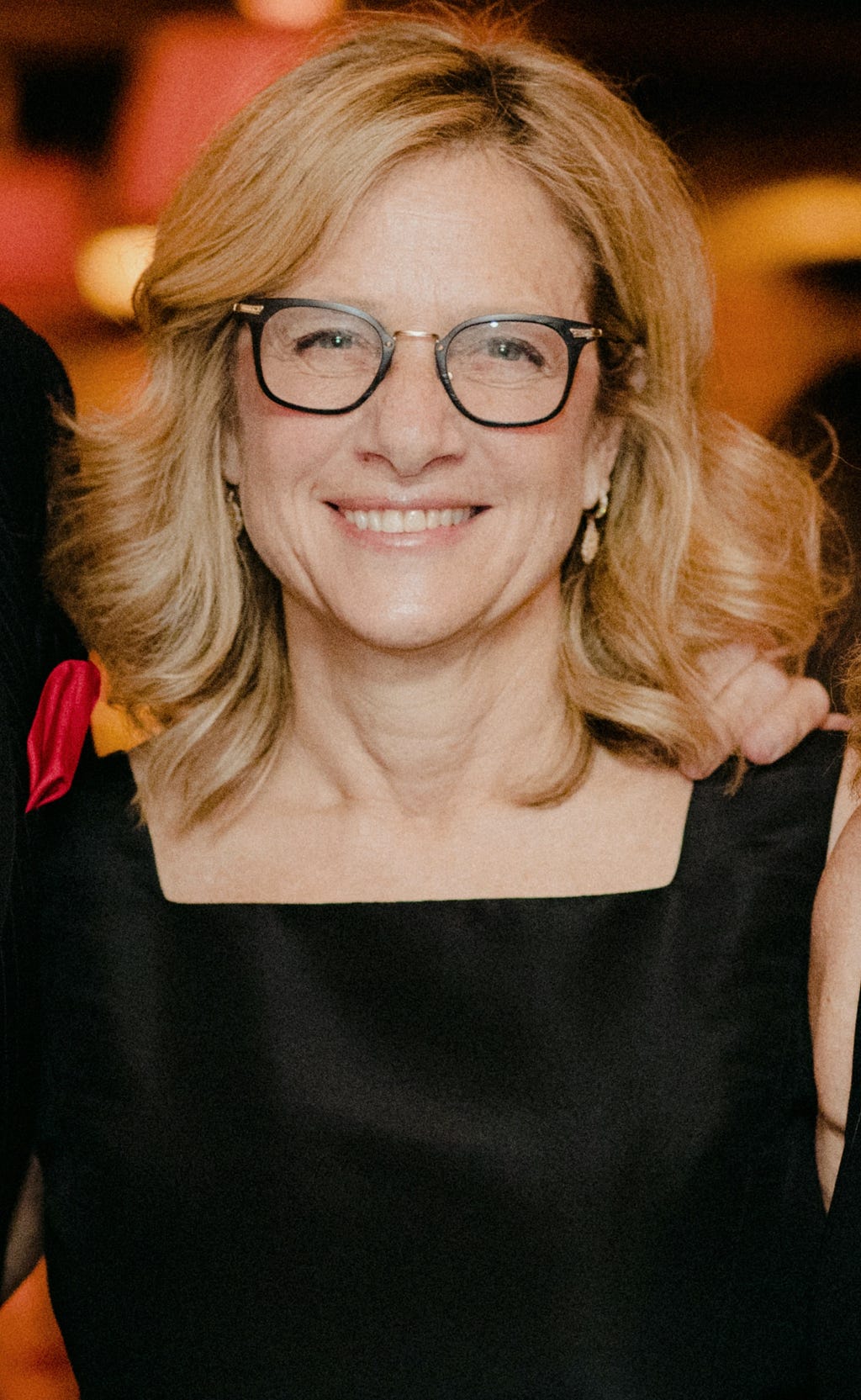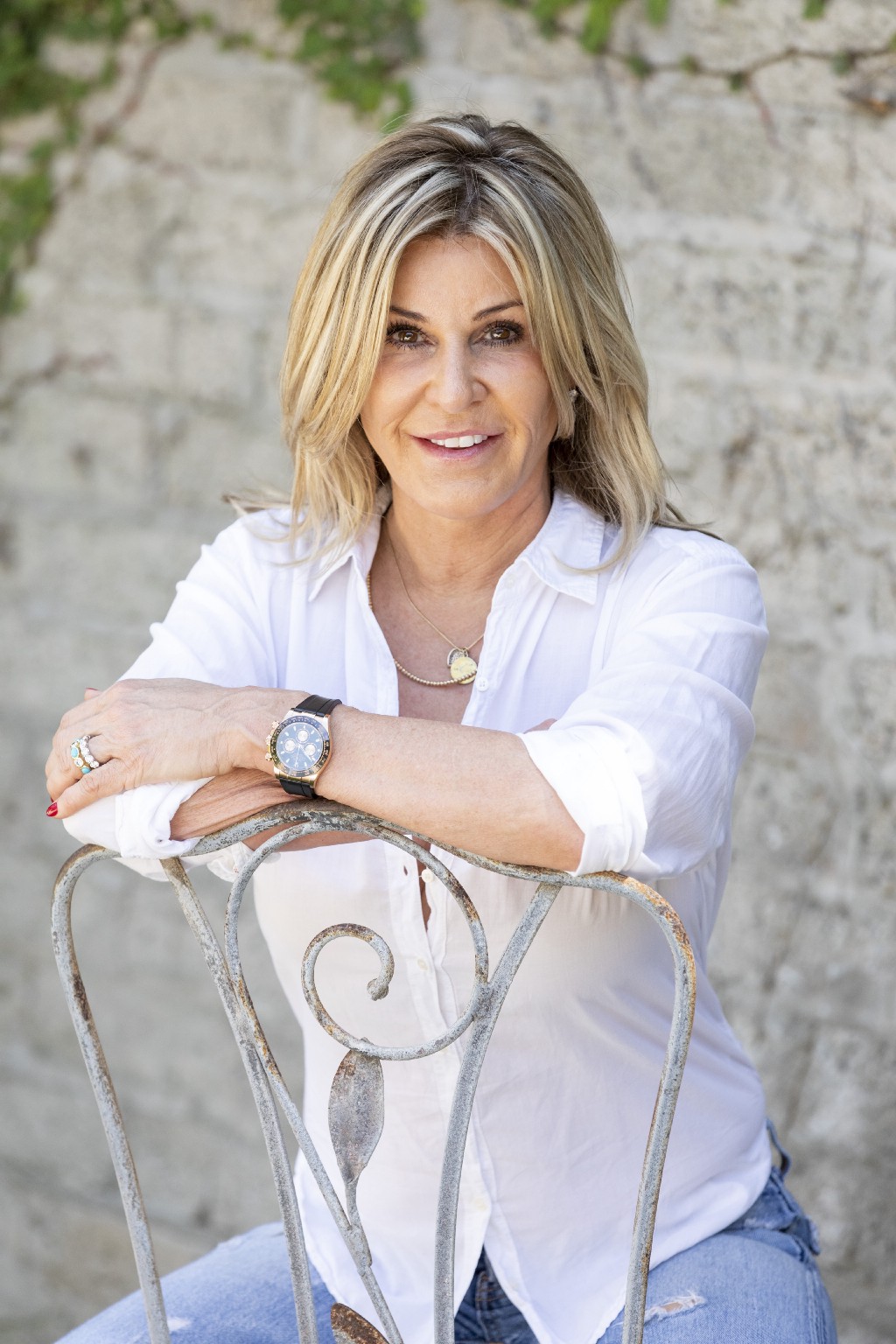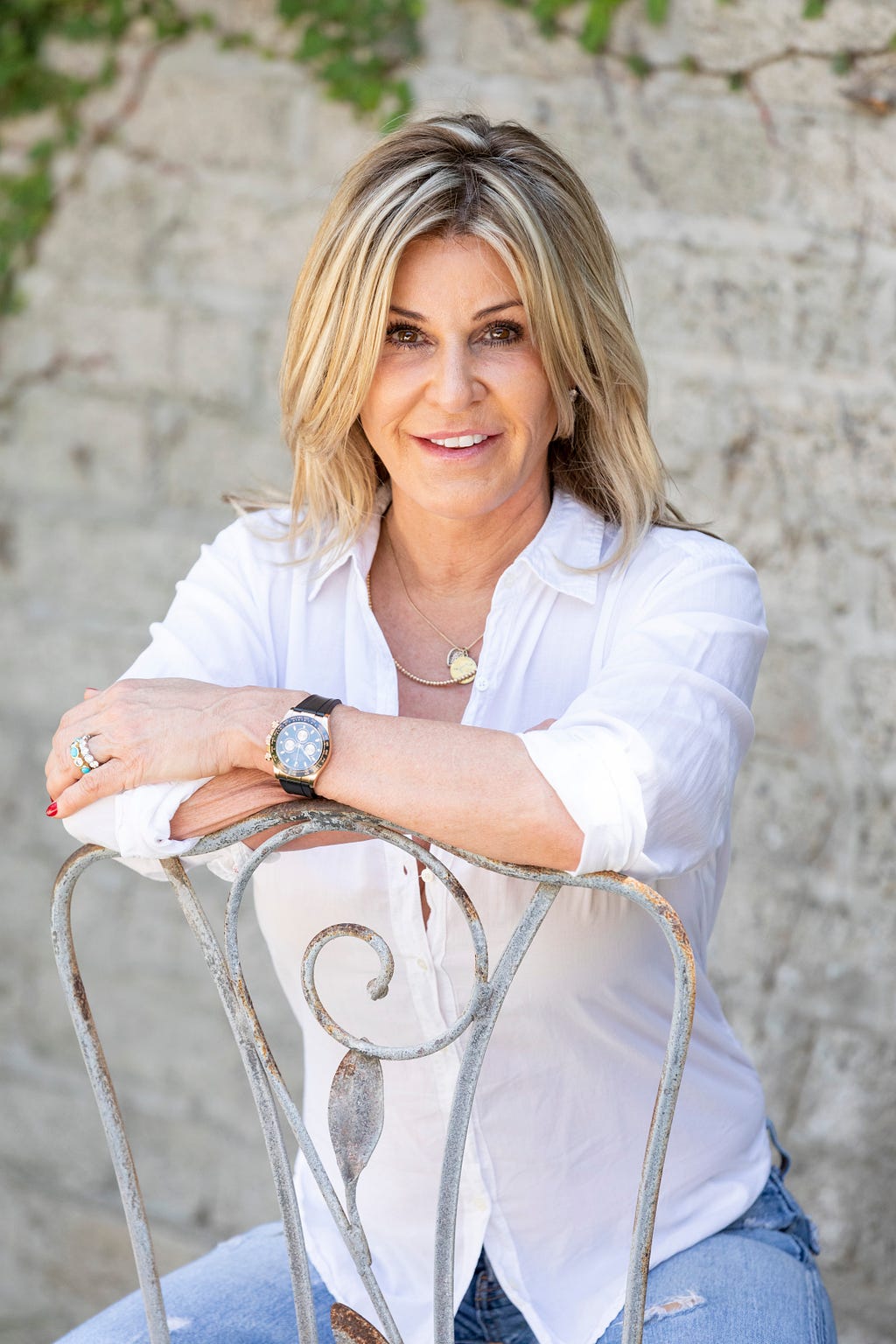Thriving As A Woman In a Male-Dominated Industry: Rachel Southard of Men In Kilts On The Five Things You Need To Thrive and Succeed as a Woman In a Male-Dominated Industry
An Interview With Candice Georgiadis
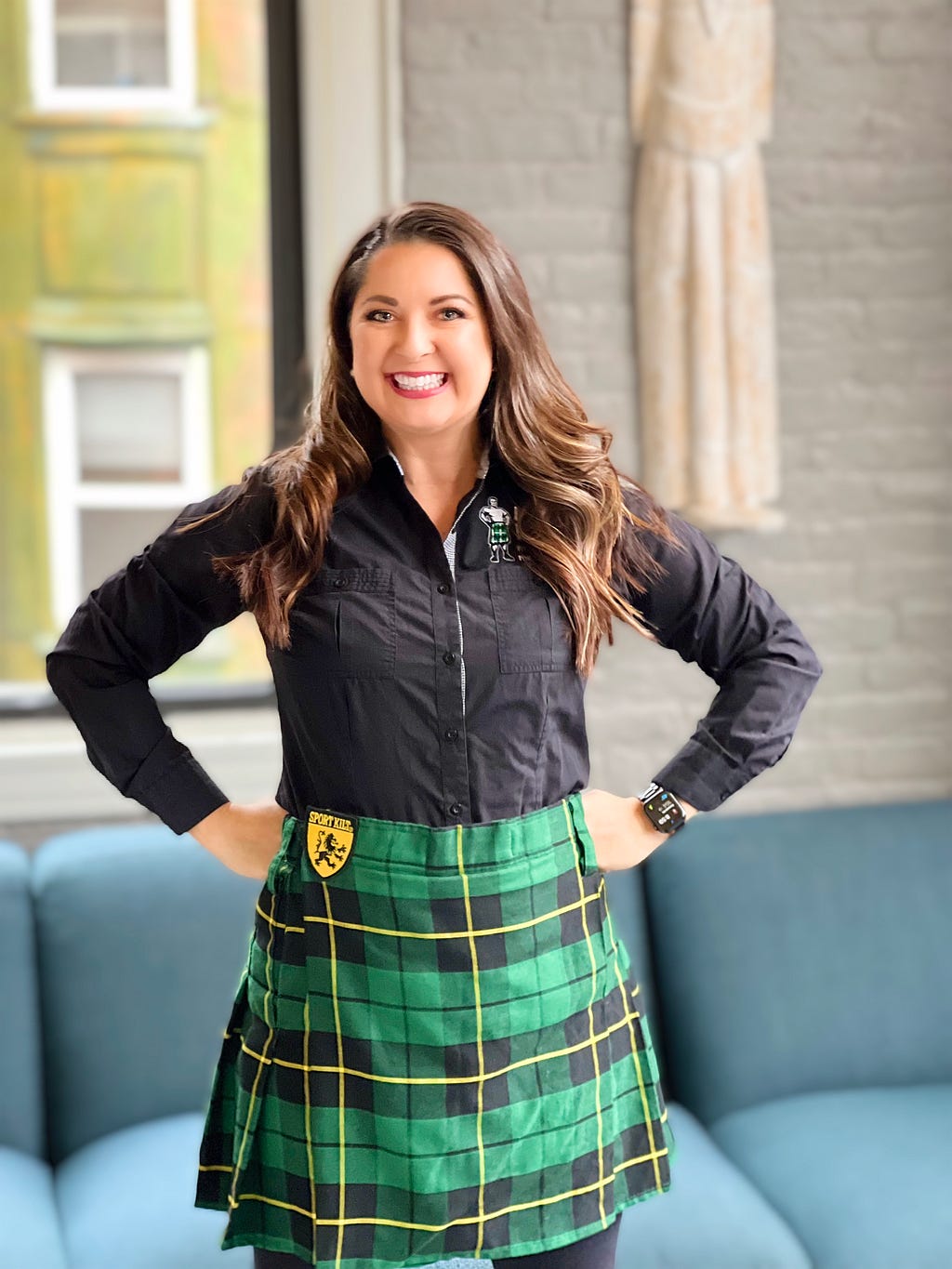
Know your strengths and take advantage of them — What’s that one thing that you know no one can do better than you? Go all in on that and deliver unshakable results. Don’t sign up for administrative or “mom tasks” unless they are your core responsibility. This is a big thing that sucks up your time but doesn’t get evaluated for performance. It’s probably one of the reasons men get promoted because they haven’t been distracted by these things. Look- I’m a mom and I’m a planner. It is second nature for me to take control and plan; dinners, events, meetings, etc.. I have to make it a point to pause from jumping in and I have gotten comfortable saying no.
In the United States in 2022, fields such as Aircraft piloting, Agriculture, Architecture, Construction, Finance, and Information technology, are still male-dominated industries. For a woman who is working in a male-dominated environment, what exactly does it take to thrive and succeed? In this interview series, we are talking to successful women who work in a Male-Dominated Industry who can share their stories and experiences about navigating work and life as strong women in a male-dominated industry. As a part of this series, we had the distinct pleasure of interviewing Rachel Southard.
Rachel Southard, Brand President: Rachel joined Threshold Brands as the President of Men in Kilts in June of 2021. Prior to joining Threshold, Rachel was a consultant at an Ogilvy company where she led strategy behind digital experience initiatives for brands such as Southwest Airlines, Chick-Fil-A, Christian Brothers Automotive and Caesars. For the ten years prior to her time at Ogilvy, Rachel worked at Self Esteem Brands (SEB) leading operations for Anytime Fitness franchise, a $1.5B global operation with over 4,000 locations worldwide.
Thank you so much for doing this with us! Before we dig in, our readers would like to get to know you a bit more. Can you tell us a bit about your childhood “backstory”?
This is so interesting because this is never a question you get in the business world, but I really do think that my childhood story had an influence on where I am today.
I definitely didn’t have a fairytale upbringing. I’m a Cajun from St. Mary Parish, South Louisiana. I literally grew up with the Bayou in my backyard. My parents were never married. My mom had me when she was only 17 years old. She married my step father when I was 2 but that was an abusive relationship and the only great thing that came from it was my sister. Needless to say I grew up with a whole lot of women in my life! My mom had 3 single sisters, my grandma who helped raise me was widowed and I had mostly girl cousins. Lots of estrogen at family gatherings! We moved around a lot. I never lived in the same place for more than a couple of years. Which meant lots of new schools, lots of new friends, lots of change. I really wouldn’t change a thing. Adversity has shaped who I am and I would not be where I am today without it.
Can you tell us the story about what led you to this particular career path?
I didn’t necessarily plan to be in franchising, it was a series of fortunate events. Once you experience franchising, you either love it or hate it, and I’ve loved it! It’s been part of my career path ever since.
My first job in high school when I was 16 was working in the daycare at a fitness franchise. I ended up working with that multi-unit franchisee for almost 10 years. I found a passion for fitness and worked my way up into managing multiple locations. It is what inspired me to do my undergraduate degree in Kinesiology. After getting married in 2009, my husband was awarded a professorship at Georgia State University so we relocated to Atlanta. I took a leap and started working for a fitness software company. Shortly after, that company was acquired by what is now the largest fitness franchise (Anytime Fitness) in the world. That was my introduction to the franchisor side of the business and I’ve never looked back.
Can you share the most interesting story that happened to you since you began your career?
I previously worked for Self Esteem Brands (SEB), the parent company of Anytime Fitness; I was there for about 10 years. That company has a beautiful, amazing culture, and I thought I would be there forever. There was never really a reason to leave SEB.
Because I had an undergraduate degree in kinesiology but was loving the business side of franchising, I wanted to get my MBA to become more well-versed in the business space. I wasn’t getting my MBA to leave Anytime. In fact, I chose an international business program that specialized in Asian business studies because we were the first franchise to begin entering into the China market. But in the midst of working full time, going to graduate school, being a wife and mother and navigating the start of the pandemic, I was diagnosed with thyroid cancer.
I think when you’re facing death, you look at life so differently. And it was at this moment that I started to think, ‘Is this really what I want? Have I let myself get complacent?’ It was a moment that truly pushed me to not only get through the current circumstances but to also do something bigger and better.
That was a pivotal moment in my career, breaking through complacency and stepping out of my comfort zone in order to really grow in my career. So I left Self Esteem Brands.
You are a successful business leader. Which three character traits do you think were most instrumental to your success? Can you please share a story or example for each?
Endurance: This goes back to my childhood and the continuous obstacles I’ve faced in my life. It’s one thing to be able to get shit done and be a go-getter, but doing that when you’re faced with roadblock after roadblock, is a whole other story. There will always be something; a pandemic, a recession, a hurricane, a soiled employee, a bad vendor. Anything can happen at any time that could drain your energy and cause you to lose focus. Having determination, grit and resilience will get you through. Having a clear vision with a strong WHY that you don’t lose sight of is a must.
We recently went through this when changing vendors. What should have been a six month project turned into a twelve month project with upset after upset. At any given time we could have given up and stayed status quo. However, we kept revisiting our vision for the future, why we were doing this in the first place and what the end result would be for us and our franchisees. A strong why will get you through.
Empathy: My husband basically has a Ph.D. in empathy so there is no escaping the exposure to the importance of this trait in leadership in my house. (Ha!) In order for me to nurture diverse and innovative thinking from my team, I have to lead with empathy. That means taking the time to listen more than I talk (which is hard to do), validate different perspectives and assume good intent. By demonstrating empathy, you build trust among your team and through trust, your team becomes more productive and collaborative.
One way I show empathy with my team is by trying to anticipate their needs. I have an employee whose son just recently went off to college. I knew it was going to be an emotional week for her so I did my best to give her space and encouraged her to take a few days off and spend those with her son. I didn’t get frustrated that she was missing work more than usual. I put myself in her shoes and really thought about how I will feel when my girls move out and go off to college. Those moments with her son were way more important than any work that needed to be done.
Fun: Something that makes me very unique as a leader and peer is my silliness; I don’t take myself too seriously. Maybe that can give an interesting twist to my executive presence, but I think it is just so important to bring fun to everything that you do. Life is too short, and work is more enjoyable when you’re having fun!
Just today, I’ve planned a surprise for my team. We’re in the middle of some big projects, and everyone is over capacity. I recognize that, and it may have frustrated them to see the invite pop up because there’s so much to do, but I scheduled a mandatory meeting for the last hour of the day. But I’m actually surprising them with a virtual escape room just to give everyone a bit of a mental break. My team isn’t always the best at work-life balance because they love the work, so I’m making it happen myself!
Ok, thank you for that. Let’s now jump to the primary focus of our interview. Can you help articulate a few of the biggest obstacles or challenges you’ve had to overcome while working in a male-dominated industry?
I’ve never thought too hard about the fact that I’m a woman in a man’s world. I just try to forget about distractions and get shit done. I think when you’re doing work that you’re passionate about and you’re determined to get something done, you don’t have time to lift your head up and realize what’s happening until you’re looking back on it.
The first several years of my career was working for male leaders who were part of the “bro-club”. It really hindered my ability to advance in my career at a pace I deserved. What it didn’t do was stunt the learning opportunities put in front of me. I carried those leaders, I put in the work and they took the credit. Although they may have taken credit for the work I did to make them look good, they cannot take away all of the lessons learned over those years.
Can you share a few of the things you have done to gain acceptance among your male peers and the general work community? What did your female co-workers do? Can you share some stories or examples?
I am who I am. I’m authentic, and I’m never going to try to be someone I’m not. I’m bubbly, fun and outgoing, and I don’t need to hide that to be great at what I do. I think men respect that level of authenticity, and when I show up as my full self, I’m able to show other women that they don’t have to be something they’re not.
There are always conversations about imposter syndrome, and quite often, women feel like they have to be buttoned up or super serious. I hope that me coming in as my true self has allowed other women to jump on the bandwagon of authenticity and present themselves as who they are, not who they think men want or need them to be.
All of that comes back to the idea that I’m going to be me. I’m going to respect others and expect that back, and we’re all going to work great together.
What do you think male-oriented organizations can do to enhance their recruiting efforts to attract more women?
Have more women in leadership positions.
Let’s be real. Women will not feel welcome if your entire leadership team is made up of older white males. If you want to attract women, you need to have some diversity across your leadership team. I don’t want to be blocked in my career; when I see a diverse leadership team, I’m more confident in the fact that I’ll be well supported.
There is also something to be said for branching out in terms of roles. Women in leadership are very often in marketing or human resources positions. Show me a woman in some other roles that are typically held by men! If you have a woman CEO or CFO, that’s an even bigger statement that tells us, ‘This is a place for everyone.’
Ok thank you for all of that. Here is the main question of our interview. Based on your opinion and experience, what are the “Five Things You Need To Thrive and Succeed as a Woman In a Male-Dominated Industry?” (Please share a story or example for each.)
Allyship: This is why it’s so important to join a company with a diverse leadership team where you have allies. Someone to advocate for you and stand by you when needed. Building relationships based on trust, consistency, and accountability with marginalized individuals should be a focus for everyone in leadership. And you have to pay it forward.
This is why I came up with the idea for She Dreams, a female focused networking group for female franchisees and leaders in our portfolio company, Threshold Brands. My co-sponsor, another female brand president at Threshold Brands, and I bring in guest speakers and host round-table discussions on different topics women face as leaders in today’s society. This is our way of being allies with our future female leaders.
Authenticity: I can’t stress this enough. Be yourself. Don’t change who you are to fit some stereotype. Be you, not who you think they want you to be. Sometimes we tell ourselves that we’re under a microscope and won’t get the privilege of messing up. Being authentic, especially in the sense of transparency, is so important. If you mess up, don’t try to sweep it under the rug — you’ll lose trust. Own it, set your ego aside, and move forward. That is how you build trust.
Unwavering Confidence- Most women have imposter syndrome, over 90% I’ve read. Those gut-wrenching thoughts telling us the world might discover we are inadequate or unworthy; that we are frauds. What you perceive is what you believe. You must shift your perception, so you can see you are already the successful person you aim to be and own it. Guess what- men don’t know what they are doing anymore than you do! Be confident in your decisions and own them. One way that I increase my confidence is by using data to make my decisions- it’s hard to argue against good ‘ol hard data.
Know your strengths and take advantage of them — What’s that one thing that you know no one can do better than you? Go all in on that and deliver unshakable results. Don’t sign up for administrative or “mom tasks” unless they are your core responsibility. This is a big thing that sucks up your time but doesn’t get evaluated for performance. It’s probably one of the reasons men get promoted because they haven’t been distracted by these things. Look- I’m a mom and I’m a planner. It is second nature for me to take control and plan; dinners, events, meetings, etc.. I have to make it a point to pause from jumping in and I have gotten comfortable saying no.
Mental health: I have a secret for you- you can have your cake and eat it too. But you have to take care of yourself. You can’t serve from an empty bucket. Nurturing a marriage, family, friendships and a career takes a lot of nourishment. Make sure you’re getting good rest, exercise, and find a hobby that allows you to lose yourself to recharge.
We recently invested in a cabin on 8 acres about 90 miles from our home near a lake. Working the land is so therapeutic for me. That hard manual labor, chopping wood, cutting trails, building a firepit, hiking, kayaking, exploring. It helps me to recharge so I can show up as my best self. It’s important that you find time to care for your mental health so you can show up and execute on the other four things.
If you had a close woman friend who came to you with a choice of entering a field that is male-dominated or female-dominated, what would you advise her? Would you advise a woman friend to start a career in a field or industry that’s traditionally been mostly men? Can you explain what you mean?
I would ask my friend, “Is this a career that you’re passionate about? Is the work something that drives you? Will it get you excited to get out of bed every morning?”
If so, just do it! Who cares who you’re surrounded by? It could be men, women or monkeys… don’t let that get in the way of following your passion.
Have you seen things change for women working in male-dominated industries, over the past ten years? How do you anticipate that it might improve in the future? Can you please explain what you mean?
There has been a spotlight on diversity over the last several years. Organizations are putting more thought and emphasis on having more representation in leadership roles and across all other roles. I’ve definitely seen a change, and I think that may be one of the reasons why I never thought too hard about whether I was entering a male-dominated space when I joined Men In Kilts.
Now, at Threshold Brands, we have a woman CEO, and there is another brand president who is a black woman and another who is LGBTQIA. There has definitely been a shift, and I think we will continue to see that shift not only in gender but also in race, orientation, and cultural background. We’re going to continue to see more diverse leadership across more organizations and that means we’re going to start having more innovation, growth and spectacular experiences. We can achieve amazing things when we value and encourage diverse perspectives.
We are very blessed that some very prominent names in Business, VC funding, Sports, and Entertainment read this column. Is there a person in the world, or in the US with whom you would love to have a private breakfast or lunch with, and why? He or she might just see this if we tag them.
I recently went to an industry convention and one of the keynote speakers was Kat Cole. I was crying during her presentation because her story resonated with me so strongly. So much of what I spoke about regarding my childhood and adversity that I’ve gone through aligns with her experience. She’s a very inspirational woman, and it would be humbling to be able to sit down with someone who is so similar to me, having come from nothing and really paved her own way. Also, Oprah. I mean- go big or go home, right?
Thank you for these fantastic insights. We greatly appreciate the time you spent on this.
Thriving As A Woman In a Male-Dominated Industry: Rachel Southard of Men In Kilts On The Five… was originally published in Authority Magazine on Medium, where people are continuing the conversation by highlighting and responding to this story.


